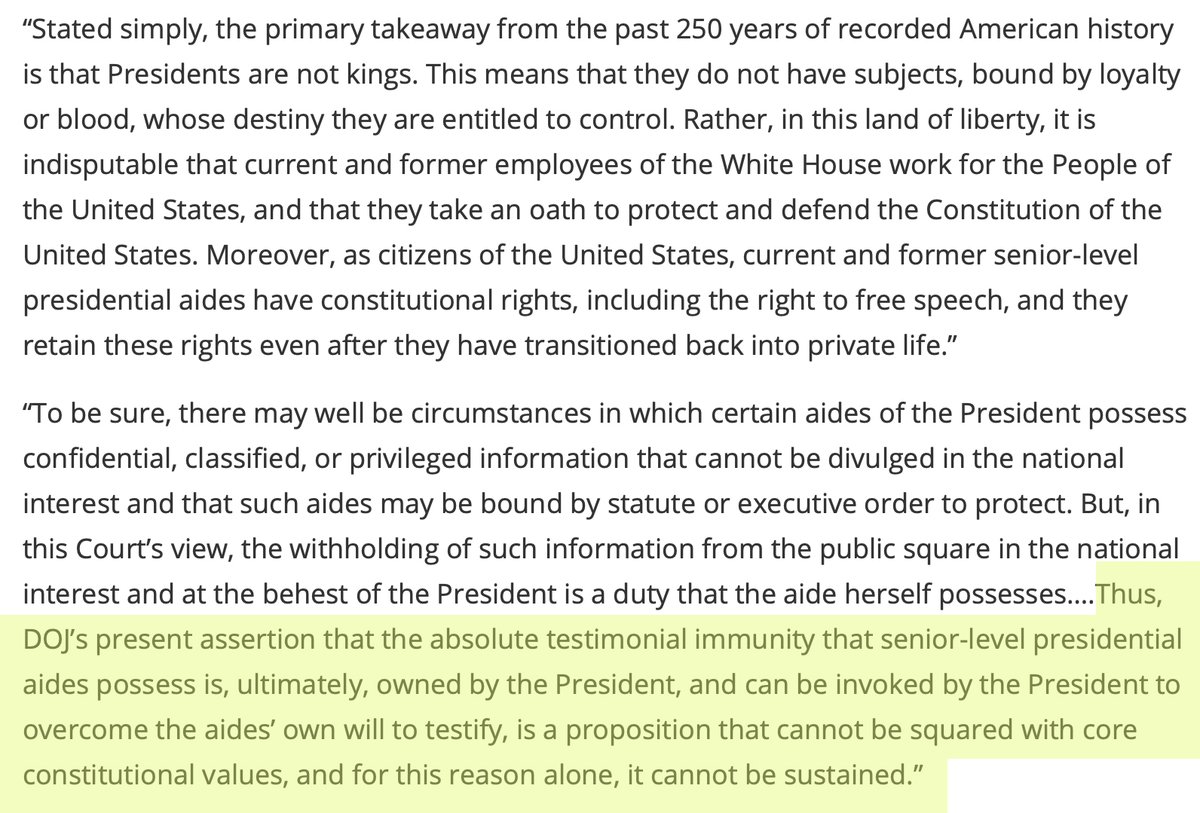whitehouse.gov/wp-content/upl…
From the brief:
“Trump acted properly” when he rejected all subpoenas and requests for information. (p. 37)
“No witness with direct knowledge testified that Trump conditioned a presidential meeting on investigations (p. 97)
🔹He properly refused to turn over evidence and permit witnesses to testify, and
🔹There was insufficient evidence to support the allegations.
Let's call that Contradiction #1
1/
Like this: Trump claims that it was perfectly appropriate that he "asked" about the Biden-Burisma affair. . .
4/
🔹He wanted an "announcement" not an investigation
🔹There were legal channels for asking for investigations. He avoided the established channels.
🔹His henchmen conditioned a meeting and aid on such an announcement.
5/
"Declare War"
"regulate Commerce with foreign nations"
"define and punish Piracies and Felonies committed on the High Seas"
(Okay, that one seems dated, but you get the idea.)
8/
See #6⤵️
If Congress is not permitted to examine motive or intent, it is by definition impossible to impeach a president for bribery (as defined by the current federal statute).
10/
First, obviously, he's not allowed to cherry-pick facts, leaving out all the testimony inconvenient to him.
Second, he's basically making what is called . . .
11/
An appellate court looks at the lower court record to determine if there was enough evidence to support the verdict.
The Court looks at all the evidence (no cherry picking).
However. . .
12/
The central contradiction in this brief is this:
If the President is indeed entitled to refuse to comply with evidence requests from Congress. . .
19/

Did the framers just goof by including a provision that allows the Senate to put the president on trial?
20/
Here's the problem for the Republican Senators, who we know plan to acquit Trump: How will they acquit without condoning Trump's behavior in Ukraine?
21/
Also, once witnesses testify, it's harder for Trump to cherry pick the facts.
22/


















